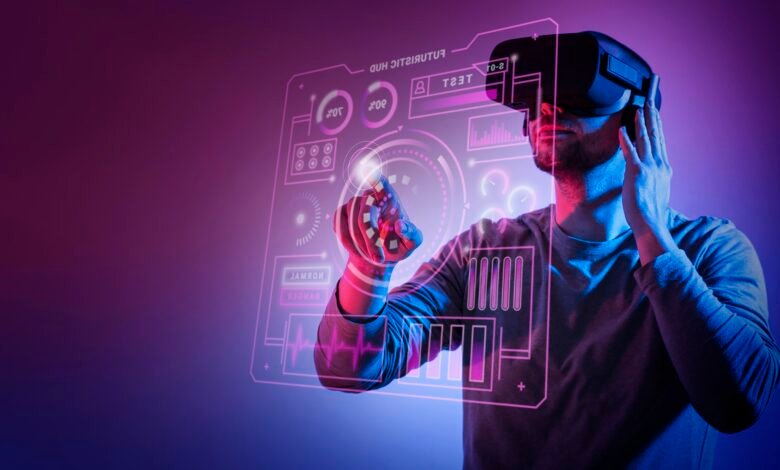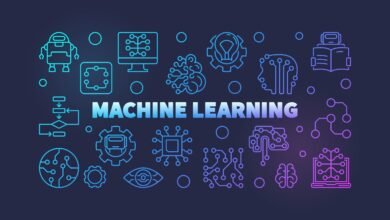
The landscape of digital gatherings has undergone a revolutionary transformation with the emergence of virtual AI events. As organizations worldwide continue to embrace remote collaboration and digital-first strategies, AI-powered virtual events have become the cornerstone of modern conference experiences. These intelligent platforms leverage artificial intelligence to create immersive, personalized, and highly engaging digital experiences that rival traditional in-person gatherings.
Virtual AI events combine the accessibility of digital platforms with the sophistication of artificial intelligence, offering attendees seamless networking opportunities, personalized content recommendations, and real-time interaction capabilities. From automated chatbots providing instant support to AI-driven matchmaking systems that connect like-minded professionals, these events are reshaping how we think about professional gatherings and educational conferences.
The evolution of AI event platforms has been accelerated by recent technological advances and changing attendee expectations. Modern participants demand more than passive viewing experiences; they seek interactive, intelligent, and value-driven encounters that traditional virtual events often fail to deliver. Artificial intelligence in events addresses these challenges by providing sophisticated analytics, predictive insights, and automated personalization that enhance every aspect of the attendee journey.
As we navigate through 2025, virtual AI events are no longer just an alternative to physical gatherings—they’ve become a preferred choice for many organizations seeking cost-effective, scalable, and environmentally sustainable event solutions. The integration of machine learning algorithms, natural language processing, and predictive analytics has created a new paradigm where events adapt to individual preferences, optimize engagement in real-time, and deliver measurable ROI through intelligent data insights.
This comprehensive guide explores the transformative power of virtual AI events, examining their key features, implementation strategies, and future potential in revolutionizing how we connect, learn, and collaborate in the digital age.
What Are Virtual AI Events
Virtual AI events represent the next evolution in digital conference technology, combining traditional online event platforms with sophisticated artificial intelligence capabilities. These AI-powered virtual events utilize machine learning algorithms, natural language processing, and predictive analytics to create dynamic, responsive, and highly personalized digital experiences for attendees.
At their core, virtual AI events are digital gatherings that leverage artificial intelligence to automate processes, enhance interactions, and optimize attendee engagement. Unlike conventional virtual events that rely primarily on pre-recorded content and basic interactive features, AI event platforms continuously adapt to participant behavior, preferences, and real-time feedback to deliver customized experiences.
The foundation of artificial intelligence in events lies in data collection and analysis. These platforms gather information from various touchpoints, including registration data, session attendance patterns, networking preferences, and engagement metrics. This data feeds sophisticated AI algorithms that can predict attendee interests, recommend relevant content, and facilitate meaningful connections between participants.
Smart Virtual AI Events incorporate multiple AI technologies working in harmony. Computer vision algorithms analyze attendee engagement during sessions, natural language processing powers intelligent chatbots and virtual assistants, while machine learning models continuously refine content recommendations and networking suggestions based on participant behavior patterns.
The intelligence embedded in these platforms extends beyond basic automation. AI-enhanced events can dynamically adjust presentation formats based on audience engagement levels, automatically generate session summaries and key takeaways, and even predict which sessions are most likely to generate leads or drive specific business outcomes.
Key Features of Virtual AI Events
Intelligent Networking and Matchmaking
Virtual AI Events excel in connecting attendees through sophisticated matchmaking algorithms. These systems analyze participant profiles, interests, professional backgrounds, and behavioral patterns to suggest meaningful connections. Unlike random networking opportunities, AI networking events create purposeful interactions that are more likely to result in valuable professional relationships and business opportunities.
The matchmaking process in smart virtual events considers multiple factors, including industry alignment, complementary skills, geographical proximity, and shared interests. Advanced algorithms can even predict the likelihood of successful networking outcomes based on historical data and interaction patterns.
Personalized Content Recommendations
Artificial intelligence in events enables dynamic content personalization that adapts to individual attendee preferences. AI algorithms analyze viewing history, session ratings, and engagement patterns to recommend relevant presentations, workshops, and networking opportunities. This personalization ensures that participants maximize their event experience by focusing on content most aligned with their professional goals and interests.
Virtual AI Events platforms can also adjust content delivery based on real-time engagement metrics, automatically highlighting key concepts when attention levels drop or providing additional resources when participants show high interest in specific topics.
Real-Time Analytics and Insights
Virtual AI events provide unprecedented visibility into attendee behavior and event performance through real-time analytics powered by artificial intelligence. These platforms track engagement metrics, interaction patterns, and participation levels to generate actionable insights for event organizers and speakers.
Advanced analytics in AI-powered virtual events can predict attendance patterns, identify potential drop-off points, and recommend optimization strategies to improve overall event effectiveness. This data-driven approach enables continuous improvement and ensures maximum return on investment for event organizers.
Automated Customer Support
AI chatbots for events provide 24/7 customer support, instantly addressing attendee questions about schedules, technical issues, and event logistics. These intelligent assistants can handle multiple languages, escalate complex issues to human agents, and maintain conversation context throughout the event duration.
The natural language processing capabilities of virtual AI assistants enable them to understand context, provide personalized responses, and even offer proactive assistance based on attendee behavior patterns and common pain points identified through machine learning.
Benefits of Virtual AI Events
Enhanced Attendee Engagement
Virtual AI events significantly improve attendee engagement through personalized experiences and intelligent interactions. AI algorithms continuously monitor engagement levels and automatically adjust content delivery, pacing, and interaction opportunities to maintain optimal participation throughout the event.
Interactive AI events incorporate gamification elements, real-time polls, and adaptive content that responds to audience feedback, creating more engaging and memorable experiences compared to traditional virtual events.
Cost-Effectiveness and Scalability
Virtual AI Events platforms offer substantial cost savings compared to physical events while providing virtually unlimited scalability. Organizations can host thousands of attendees without the venue, travel, and accommodation costs associated with traditional conferences.
The automation capabilities of artificial intelligence in Virtual AI Events reduce staffing requirements for customer support, registration management, and basic attendee services, further enhancing cost-effectiveness while maintaining high-quality experiences.
Global Accessibility

Virtual AI events eliminate geographical barriers, enabling global participation without travel restrictions. AI-powered translation services and time zone optimization features ensure that international attendees can fully participate regardless of their location or language preferences.
Data-Driven Decision Making
Smart Virtual AI Events generate comprehensive analytics that provide valuable insights into attendee preferences, content effectiveness, and overall event performance. This data enables organizations to make informed decisions about future events, content strategy, and attendee experience optimization.
Challenges and Solutions
Technical Infrastructure Requirements
Implementing AI-powered virtual events requires a robust technical infrastructure capable of handling complex algorithms and large datasets. Organizations must invest in scalable cloud computing resources and ensure reliable internet connectivity to support AI processing requirements. Solution: Partner with established AI event platforms that provide managed infrastructure and technical support, reducing the burden on internal IT resources while ensuring optimal performance.
Privacy and Data Security Concerns
Virtual AI events collect and process significant amounts of personal and behavioral data, raising important privacy and security considerations. Organizations must implement comprehensive data protection measures and comply with relevant regulations such as GDPR and CCPA.Solution: Choose AI event platforms that prioritize data security, offer transparent privacy policies, and provide attendees with granular control over their data sharing preferences.
User Adoption and Training
The advanced features of artificial intelligence in events may require attendees to adapt to new interfaces and interaction methods. Some participants may be hesitant to engage with AI-powered features or may require additional support to fully utilize platform capabilities. Solution: Provide comprehensive onboarding materials, interactive tutorials, and dedicated support channels to help attendees become comfortable with AI-enhanced event features.
Best Practices for Implementing Virtual AI Events
Strategic Planning and Goal Setting
Successful Virtual AI Events begin with clear objectives and strategic planning. Organizations should define specific goals for AI implementation, whether focused on improving attendee engagement, generating leads, or enhancing networking opportunities.
Establish measurable KPIs that align with business objectives and leverage the analytics capabilities of AI event platforms to track progress and demonstrate ROI. Consider attendee personas and preferences when designing AI-powered features to ensure maximum adoption and effectiveness.
Content Strategy Optimization
Develop content specifically designed for Virtual AI Events, taking advantage of personalization capabilities and interactive features. Create modular content that can be dynamically assembled based on attendee interests and engagement patterns.
Incorporate multimedia elements, interactive polls, and real-time Q&A sessions that leverage AI capabilities to enhance engagement and provide personalized experiences for different attendee segments.
Technology Integration and Testing
Ensure seamless integration between AI event platforms and existing technology infrastructure. Conduct thorough testing of all AI features, including chatbots, recommendation engines, and analytics systems, before the event launch.
Develop contingency plans for technical issues and provide alternative access methods for attendees who may experience difficulties with AI-powered features.
Attendee Communication and Engagement
Clearly communicate the benefits and features of Virtual AI Events to potential attendees, highlighting how AI enhancements will improve their experience. Provide pre-event training materials and support resources to ensure attendees can fully utilize available features.
Create engagement strategies that leverage AI capabilities, such as personalized networking recommendations, intelligent content suggestions, and automated follow-up communications based on attendee behavior and interests.
Future of Virtual AI Events
Emerging Technologies and Trends
The future of virtual AI events will be shaped by emerging technologies, including virtual reality (VR), augmented reality (AR), and advanced natural language processing. Artificial intelligence is transforming search engine optimization and digital experiences, with similar impacts expected in the events industry.
Immersive AI events will incorporate VR environments that provide realistic spatial interactions while maintaining the intelligence and personalization capabilities of current AI platforms. These environments will enable more natural networking experiences and enhanced content delivery through immersive technologies.
Predictive Analytics and Behavioral Intelligence
Advanced predictive analytics will enable AI event platforms to anticipate attendees’ needs and preferences with unprecedented accuracy. Future systems will proactively suggest networking opportunities, predict session popularity, and automatically optimize event schedules based on historical data and real-time behavioral patterns.
Machine learning models will become more sophisticated in understanding attendee intent and motivation, enabling smart Virtual AI Events to deliver increasingly personalized and valuable experiences that adapt in real-time to changing circumstances and preferences.
Integration with Business Systems
Virtual AI Events will become more deeply integrated with customer relationship management (CRM) systems, marketing automation platforms, and sales tools. This integration will enable seamless lead nurturing, automated follow-up communications, and comprehensive ROI tracking across the entire customer journey.
AI-enhanced events will serve as powerful data collection and analysis tools that feed into broader business intelligence systems, providing valuable insights for product development, customer segmentation, and strategic decision-making processes.
Industry Applications and Use Cases

Corporate Training and Professional Development
AI-powered virtual events are revolutionizing corporate training programs by providing personalized learning paths, adaptive content delivery, and intelligent assessment systems. These platforms can identify knowledge gaps, recommend supplementary materials, and track learning progress across large organizations.
SmartVirtual AI Events in the training sector leverage AI to create immersive simulation environments, provide real-time feedback, and facilitate peer-to-peer learning through intelligent networking and collaboration tools.
Marketing and Lead Generation
Virtual AI events excel in marketing applications, providing sophisticated lead scoring, automated qualification processes, and personalized content delivery that increases conversion rates. AI algorithms can identify high-value prospects based on engagement patterns and behavioral indicators.
AI event platforms integrate seamlessly with marketing automation systems to provide comprehensive campaign analytics, automated follow-up sequences, and detailed attribution reporting that demonstrates clear ROI from event marketing investments.
Healthcare and Medical Conferences
The healthcare industry has embraced artificial intelligence in events to deliver continuing medical education, facilitate professional networking, and share critical research findings. AI-powered platforms can recommend relevant sessions based on medical specialties, track continuing education credits automatically, and facilitate expert connections.
Medical AI events incorporate sophisticated privacy protections and compliance features necessary for healthcare applications while providing the personalization and engagement benefits of artificial intelligence technologies.
Technology and Innovation Showcases
Virtual AI Events are particularly effective for technology conferences and innovation showcases, where attendees expect cutting-edge digital experiences. These events can demonstrate AI capabilities while providing platforms for product launches, technical demonstrations, and developer networking.
Tech AI events often serve as testing grounds for emerging AI technologies, providing valuable feedback and user experience data that informs future platform development and feature enhancement efforts.
Measuring Success and ROI
Key Performance Indicators
Measuring the success of Virtual AI Events requires comprehensive analytics that track both traditional event metrics and AI-specific performance indicators. Key metrics include attendee engagement rates, networking connection quality, content personalization effectiveness, and automated feature adoption rates.
AI event platforms provide sophisticated analytics dashboards that track real-time engagement, predict attendee satisfaction, and measure the effectiveness of personalization algorithms. These insights enable continuous optimization and demonstrate clear value from AI investments.
Long-term Value Assessment
The true value of AI-powered virtual events extends beyond immediate event outcomes to include long-term relationship building, knowledge retention, and business development opportunities. Advanced analytics track post-event engagement, follow-up interactions, and conversion rates over extended periods.
Smart Virtual AI Events provide longitudinal analysis capabilities that measure the lasting impact of networking connections, content engagement, and business relationships formed during AI-enhanced experiences, demonstrating sustained ROI from artificial intelligence investments.
More Read: Virtual AI Events Getting Maximum Value from Online Learning
Conclusion
Virtual AI events represent a fundamental transformation in how organizations approach digital conferences, training programs, and professional gatherings. By leveraging artificial intelligence to create personalized, engaging, and data-driven experiences, these platforms offer significant advantages over traditional virtual events in terms of attendee satisfaction, cost-effectiveness, and measurable business outcomes.
As AI technology continues to advance, AI-powered virtual events will become increasingly sophisticated, incorporating immersive technologies, predictive analytics, and seamless business system integrations that deliver unprecedented value for organizers and attendees alike. Organizations that embrace artificial intelligence in events today will be well-positioned to capitalize on emerging opportunities and maintain competitive advantages in an increasingly digital-first business environment.











